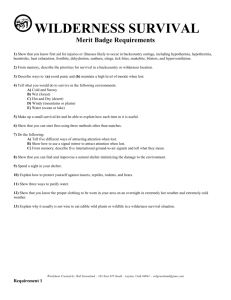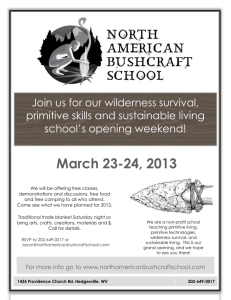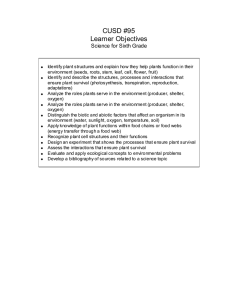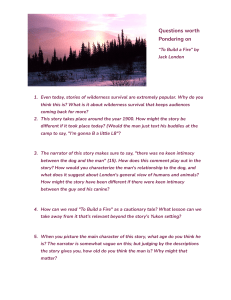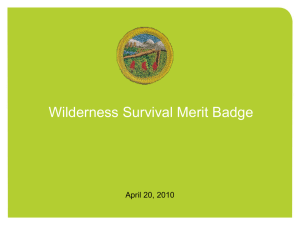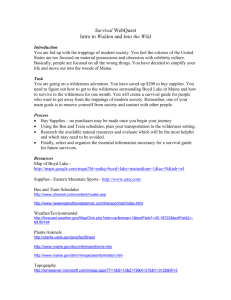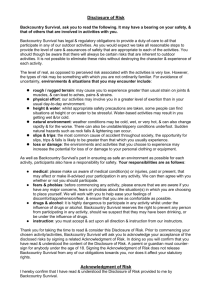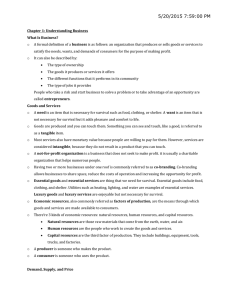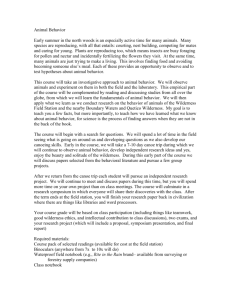WILDERNESS SURVIVAL
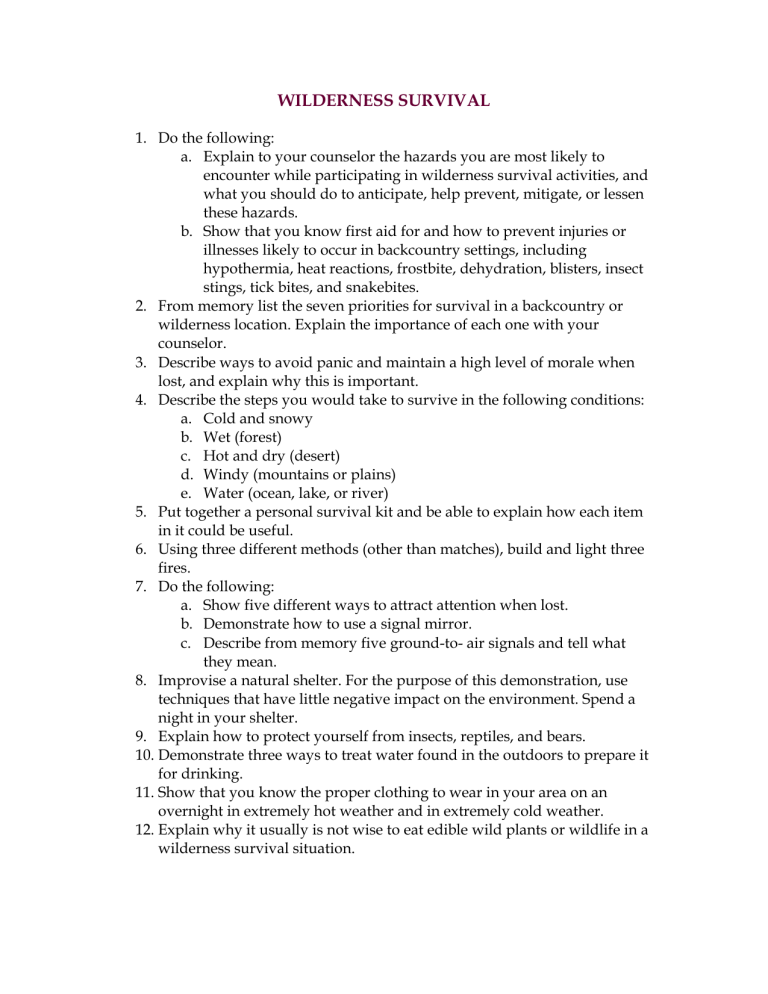
WILDERNESS SURVIVAL
1.
Do the following: a.
Explain to your counselor the hazards you are most likely to encounter while participating in wilderness survival activities, and what you should do to anticipate, help prevent, mitigate, or lessen these hazards. b.
Show that you know first aid for and how to prevent injuries or illnesses likely to occur in backcountry settings, including hypothermia, heat reactions, frostbite, dehydration, blisters, insect stings, tick bites, and snakebites.
2.
From memory list the seven priorities for survival in a backcountry or wilderness location. Explain the importance of each one with your counselor.
3.
Describe ways to avoid panic and maintain a high level of morale when lost, and explain why this is important.
4.
Describe the steps you would take to survive in the following conditions: a.
Cold and snowy b.
Wet (forest) c.
Hot and dry (desert) d.
Windy (mountains or plains) e.
Water (ocean, lake, or river)
5.
Put together a personal survival kit and be able to explain how each item in it could be useful.
6.
Using three different methods (other than matches), build and light three fires.
7.
Do the following: a.
Show five different ways to attract attention when lost. b.
Demonstrate how to use a signal mirror. c.
Describe from memory five ground-to- air signals and tell what they mean.
8.
Improvise a natural shelter. For the purpose of this demonstration, use techniques that have little negative impact on the environment. Spend a night in your shelter.
9.
Explain how to protect yourself from insects, reptiles, and bears.
10.
Demonstrate three ways to treat water found in the outdoors to prepare it for drinking.
11.
Show that you know the proper clothing to wear in your area on an overnight in extremely hot weather and in extremely cold weather.
12.
Explain why it usually is not wise to eat edible wild plants or wildlife in a wilderness survival situation.
BSA Advancement ID#: 117
Source: Boy Scout Requirements, #33215, revised 2004
